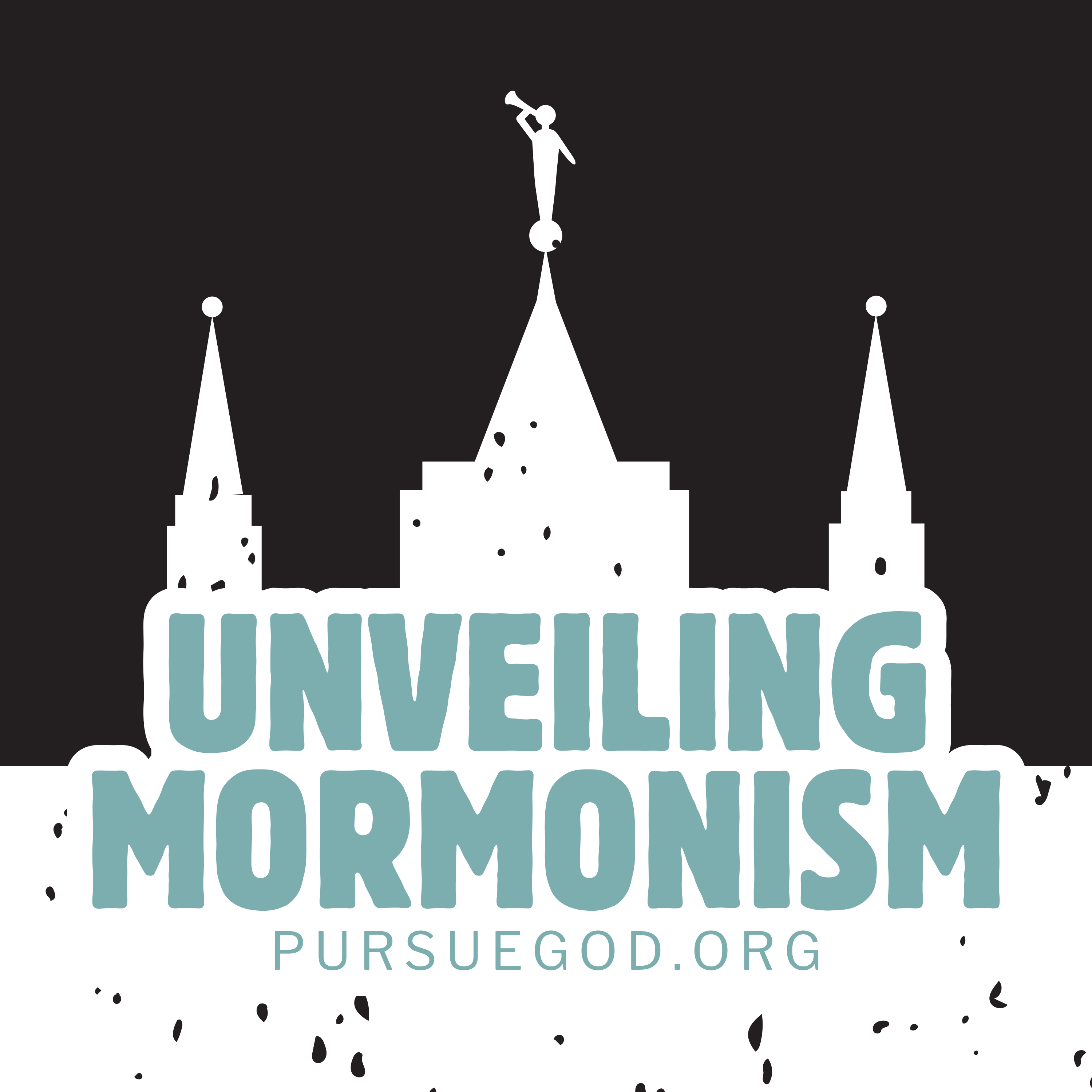What Mormons Believe about God
What we believe about God is probably the most important thing we can believe. Everything else in a world view starts with our concept of God. So let’s try to understand what Mormonism says about God so we can compare our own beliefs.
The Unveiling Mormonism podcast pulls back the curtain on Mormon history, culture and doctrine. Join us for new episodes every Monday.
Find resources to talk about these episodes at pursueGOD.org/mormonism.
Help others go "full circle" as a follower of Jesus through our 12-week Pursuit series.
Click here to learn more about how to use these resources at home, with a small group, or in a one-on-one discipleship relationship.
Got questions or want to leave a note? Email us at podcast@pursueGOD.org.
God the Father has not always been God.
According to Latter-day Saint thinking, there was a time when God was not God. Before he became divine, he existed as a mortal human being. Joseph Smith, the founder and first prophet of Mormonism, put it like this in a message called the King Follett Discourse:
God himself was once as we are now…. It is the first principle of the Gospel to know for certainty the Character of God,...that he was once a man like us; yea, that God himself, the Father of us all, dwelt on an earth, the same as Jesus Christ himself did.
Our Heavenly Father, says Smith, was once human, just like us, and dwelt on some planet much like ours.
Lorenzo Snow, a later LDS prophet, summarized this doctrine in a famous saying: “As man now is, God once was.”
By contrast, the Bible teaches that God has always been God. Psalm 90:2 declares, “Before the mountains were born, before you gave birth to the earth and the world, from beginning to end, you are God.” Long before anything else existed, God was still God. One translation says, “From everlasting to everlasting, you are God.”
God the Father is an exalted man.
But the being Mormons worship as God did not remain in his mortal human state. Over time, he progressed to become a god. This is what the word “exalted” means to Mormons: to be exalted is to become like God, with all the powers and prerogatives of God. In the King Follett Discourse, Joseph Smith added: “God himself was once as we are now, and is an exalted man, and sits enthroned in yonder heavens!” In other words, God is the same kind of being as humans are.
Thus in Mormonism, deity is not an intrinsic condition, but an attainable status or role. If godhood is intrinsic, humans cannot become gods, because humans are a different kind of being than God is. But to Latter-day Saints, God is not a different sort of being, the same kind of being who has achieved a higher standing or position.
By contrast, the Bible teaches that God is not a man, nor ever was a man. Number 23:19 states quite clearly, “God is not a man, so he does not lie. He is not human, so he does not change his mind.” God does not have the failings that human beings have, such as deceit or uncertainty. The reason is not because he is more highly evolved or exalted than we are in our present condition. The reason is because God is not human at all.
God the Father has a physical body of flesh and bone.
If God is an exalted human being, it follows that he would have the same anatomy as we do. This is expressed in a training manual called Gospel Principles: “His eternal spirit is housed in a tangible body of flesh and bones.” It makes sense that if God is or was a man, he would have a human body with two arms, two legs, internal organs, and the rest.
But the Bible teaches that God does not have a body. God is a spirit. In John 4:24, Jesus simply said, “For God is Spirit….” He didn’t say that God has a spirit, but that God is spirit. By definition, that means God is not embodied. For example, in Luke 24:36-39 (ESV), when the resurrected Jesus appeared to his disciples, they thought he was a spirit. Jesus set them straight: “A spirit does not have flesh and bones as you see that I have.”
In Jeremiah 23:24, God says, “Am I not everywhere in all the heavens and earth?” This would not be possible if God had a physical, human body - even if it was an exalted or glorified body.
Human beings can become like God is now.
Earlier we quoted Lorenzo Snow: “As man now is, God once was.” This saying has a second part: “As God now is, man may be.” If God was once a man who became God, it makes sense that others can do the same thing.
But while this idea may be logically consistent within the LDS worldview, the Bible teaches otherwise: that God is a far different kind of being from us. We can never become deities. This is the lie the serpent tempted Adam and Eve with in the Garden of Eden (Genesis 3:5). He claimed that if they are the forbidden fruit, “You will become like God.”
The prophet Isaiah condemns in the strongest terms those who fail to maintain that distinction. He quotes a king who thought he could become like God (Isaiah 14:14-15): “I will climb to the highest heavens and be like the Most High.” Isaiah warned him of the consequences of this attitude: “Instead, you will be brought down to the place of the dead, down to its lowest depths.”
Human beings cannot become gods. To think so is an insult to the uniqueness and glory of the one being who really is God.



